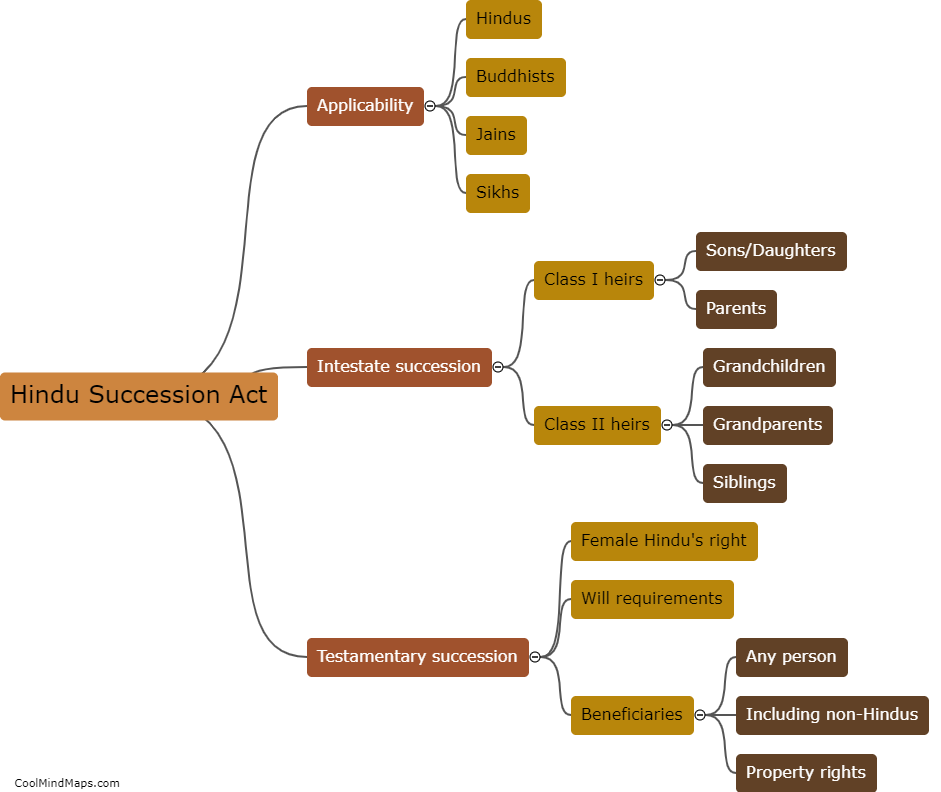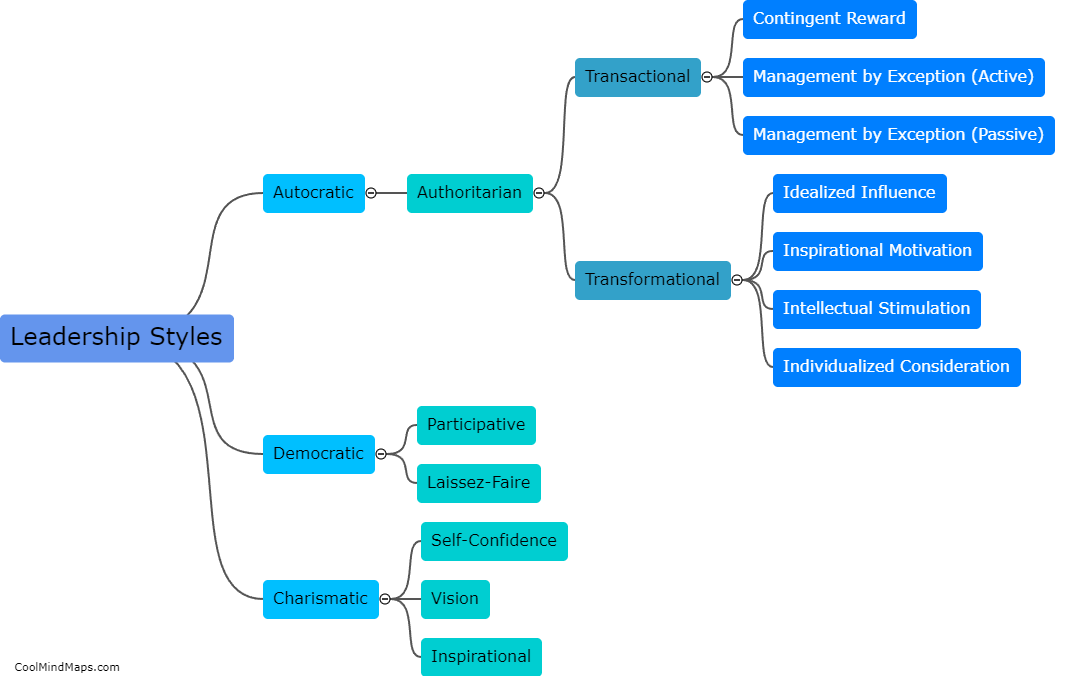What are the key provisions of Hindu Succession Act?
The Hindu Succession Act, 1956 is a law in India that governs inheritance and succession among Hindus. The act was amended in 2005 to include several key provisions, such as the equal right of daughters to inherit property as sons and the abolition of the coparcenary system, which gave preference to male heirs. The act also allows for the partition of joint family property, prevents disinheritance of widows, and provides for the adoption of children as heirs. The primary goal of the act is to ensure fair and equal distribution of property among family members, regardless of gender or birth order.

This mind map was published on 17 May 2023 and has been viewed 98 times.











